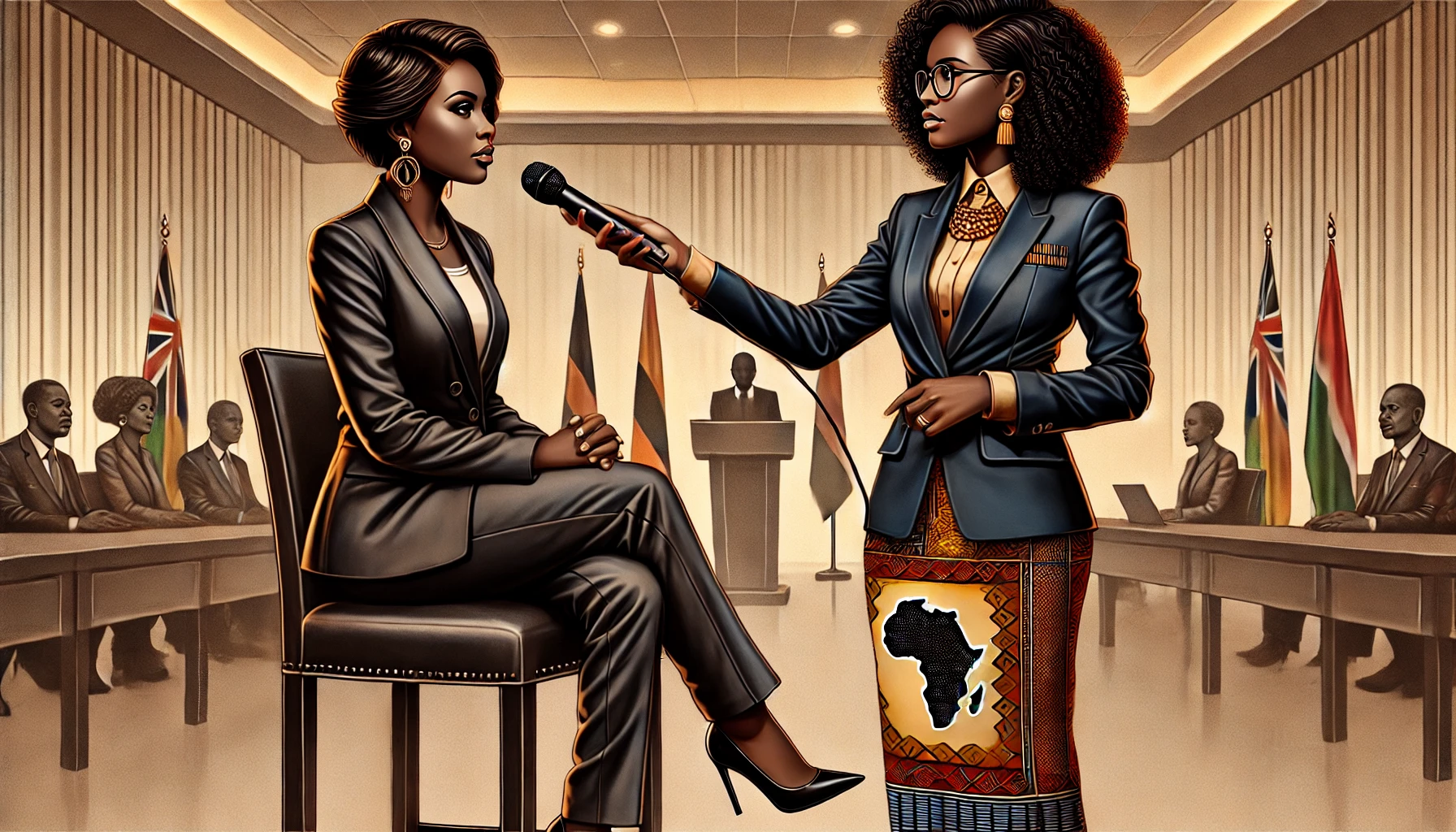advertisement
Deepfakes: The Dark Side of AI

Technology, in all its glory, can seem omniscient.
It has transformed Africa, but it’s also brought forth a sinister threat: the weaponisation of AI against women. Deepfakes – hyper-realistic AI-generated fakes – are no longer just a fascinating sci-fi concept. They are being used to harass and silence women in politics and journalism across the continent as informed by the distressing findings of the Digital Shadows: Deepfakes Used As Violence Against Women in Journalism & Politics During African Elections report.
Digital forgeries are undermining democracy in Ghana, Namibia, and Senegal with the deepfake onslaught emerging as a new form of gender-based violence – technology-facilitated gender-based violence (TfGBV). “Unlike traditional forms of GBV, which often manifest physically or verbally through attacks, TfGBV happens through deepfakes and exploiting digital platforms to cause psychological and reputational harm,” it says. “Deepfakes,” the report states, “are being weaponised to tarnish reputations, spread falsehoods, and harass women, often in the most public and vulnerable moments of their careers. Women in politics and journalism are particularly susceptible, as their visibility makes them prime targets for digital harassment and character assassination.”
advertisement
In Ghana’s 2020 elections, deepfakes were deployed to smear female politicians, spreading fabricated narratives across fake news sites and social media. Namibia’s 2024 elections witnessed a disturbing escalation with deepfakes strategically used to discredit women leaders. And in Senegal, their 2024 election cycle saw coordinated disinformation campaigns, including deepfake videos, designed to undermine the credibility of female candidates. It would be almost reassuring if these were isolated incidents. They are not.
Ghanaian female politicians like Professor Naana Jane Opoku Agyemang have faced sustained online vitriol through attacks exploiting cultural biases, portraying women as less capable, successfully reinforcing the belief that women cannot be leaders. Deepfakes blur the line between truth and fiction, eroding public trust in critical apparatus like media and democratic processes. In Namibia, limited awareness and legal recourse have exacerbated the issue. Meanwhile, in Senegal, cultural stereotypes have intensified the vulnerability of female leaders no thanks to manipulated content perpetuating stereotypes.
The conundrum with deepfakes is they don’t just damage reputations; they erode public trust in women leaders and the democratic process itself. The psychological toll on these women is immense – anxiety, depression, and burnout often force them to withdraw from public life, shrinking the pool of female voices in leadership and journalism. This isn’t just about individual women; it’s about dismantling the very foundations of democracy.
advertisement
Inside The Legal Vacuum
There are no safety measures either. This lack of robust legal frameworks across the continent generally and the three countries specifically leaves women incredibly vulnerable. Unfortunately, existing laws often fail to address the nuances of AI-driven threats. The Digital Shadows report emphasises the urgent need for specific legislation targeting deepfakes, with enforceable penalties for perpetrators.
Moreover, social media platforms, the primary channels spreading deepfakes, must shoulder greater responsibility. “These hyper-realistic digital fabrications have fundamentally altered the landscape of online disinformation and harassment, making it more challenging to discern authentic content from fabricated material,” cites the report. Stronger content moderation policies, AI-powered detection tools, and collaboration with governments are critical in curbing their spread. With platforms such as X and Facebook doing away with fact-checkers and welcoming community notes as replacements, more harmful content is likely to appear on platforms.
Just as the problem is complex so is the solution multi-pronged. Digital Shadows makes recommendations for policy reform with governments enacting comprehensive legislation that specifically addresses TfGBV and deepfakes. Media literacy is no panacea, but journalists, politicians, and the general public all need the tools to identify and counter deepfakes.
advertisement
Such programmes must focus on digital safety, identifying manipulated content, and reporting and mitigating online harassment. AI is King, thus using it to fight itself comes with some sort of poetic justice. Investing in and deploying AI detection technologies like Intel’s Real-time Deepfake Detector can help flag manipulated media before it spreads. It means collaboration between tech companies and civil society is paramount to ensure the accessibility and ethical development of these tools.
Sadly, there are existing victims. They need support such as access to legal aid, psychological counselling, and online support communities. All these serve to empower women to reclaim their digital spaces without fear. Inevitably, large-scale public awareness campaigns are needed to educate citizens about the dangers of deepfakes and the importance of responsible AI use. Such campaigns should involve local leaders. They should also focus on building society’s resilience against disinformation by inspiring them to recognise, resist, withstand and respond to disinformation.
What Can You Do?
Beware.
Deepfakes and TfGBV are clearly not just technological challenges; they are people issues. Societal issues that demand collective action. Threats that need to be addressed head-on. It is not just up to African nations to create safer, more inclusive digital environments where women can thrive. Supporting independent media, developing critical thinking skills and trust in institutions and cultivating the ability to verify information to track down credible sources are a robust defence.
Insights from Ghana, Namibia, and Senegal give us a roadmap for tackling the dark side of AI. Ghana ought to draft legislation providing victims with clear legal recourse. Namibia must align its cybercrime bill with international standards. Senegal needs to enforce its existing laws on misinformation with updated provisions for emerging technologies. Technology as an enabler should be a force for progress, not a weapon.